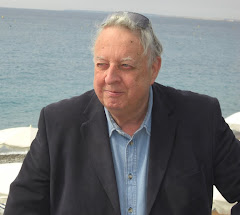I have fifteen different sets of Bach's six sonatas and partitas for solo violin, including versions by such stellar violinists as Heifetz, Grumiaux, Milstein, Ibragimova and Weithaas. Why I bought yet another set I don't know, except the violinist is Augustin Hadelich, a violinist who greatly impressed me with the one CD I have of his playing. His playing reminds me of Heifetz: technically effortless, and with a warm, sophisticated sound. Some of the prestissimo playing in these Bach works is nothing short of breathtaking -- try the double of the Corrente in the B minor partita, or the whirlwind finale of the C major sonata. The fugues positively dance along, helped by swift tempi and light bowing. Throughout the set, Hadelich combines light bowing with the appropriate degree of fantasy and varied dynamics.
The chaconne from the D minor partita is a lesson by both Bach and Hadelich as to just how varied and interesting the sound of a violin can be. The performance style of these works has come a long way in the past 60 or so years, and modern violinists such as Hadelich -- who is no “baroque” player -- have learned a lot from the past experiments by the baroqueux. There is now more consciousness of lightness of touch, of permitted fantasy, of varied dynamics, of the fact that popular dance rhythms underlie so much of this music, whether explicitly as in “gavotte”, “bourée”, “sarabande” etc. or implicitly. Hadelich is a long way from 1960s violinists such as Johanna Martzy or Alfredo Campoli, followed by Sigiswald Kuijken and the baroque crowd.
Hadelich plays on a del Gesù violin previously owned by Henryk Szeryng. It sounds superb in Hadelich's hands and he is given an excellent recording: not too close, not too far away, not too much reverberation to muddle the sound. Notwithstanding all the other great violinists who have recorded these works over the decades, I know that whenever in future I want to listen to one of Bach's sonatas and partitas for solo violin, it will be the Hadelich version I take off the shelf. I can give no higher praise. He has technique to spare, coupled with imagination, taste and musicality. I hope he does not record too many more CDs, since I am running out of shelving space, years to live, and money to buy.
